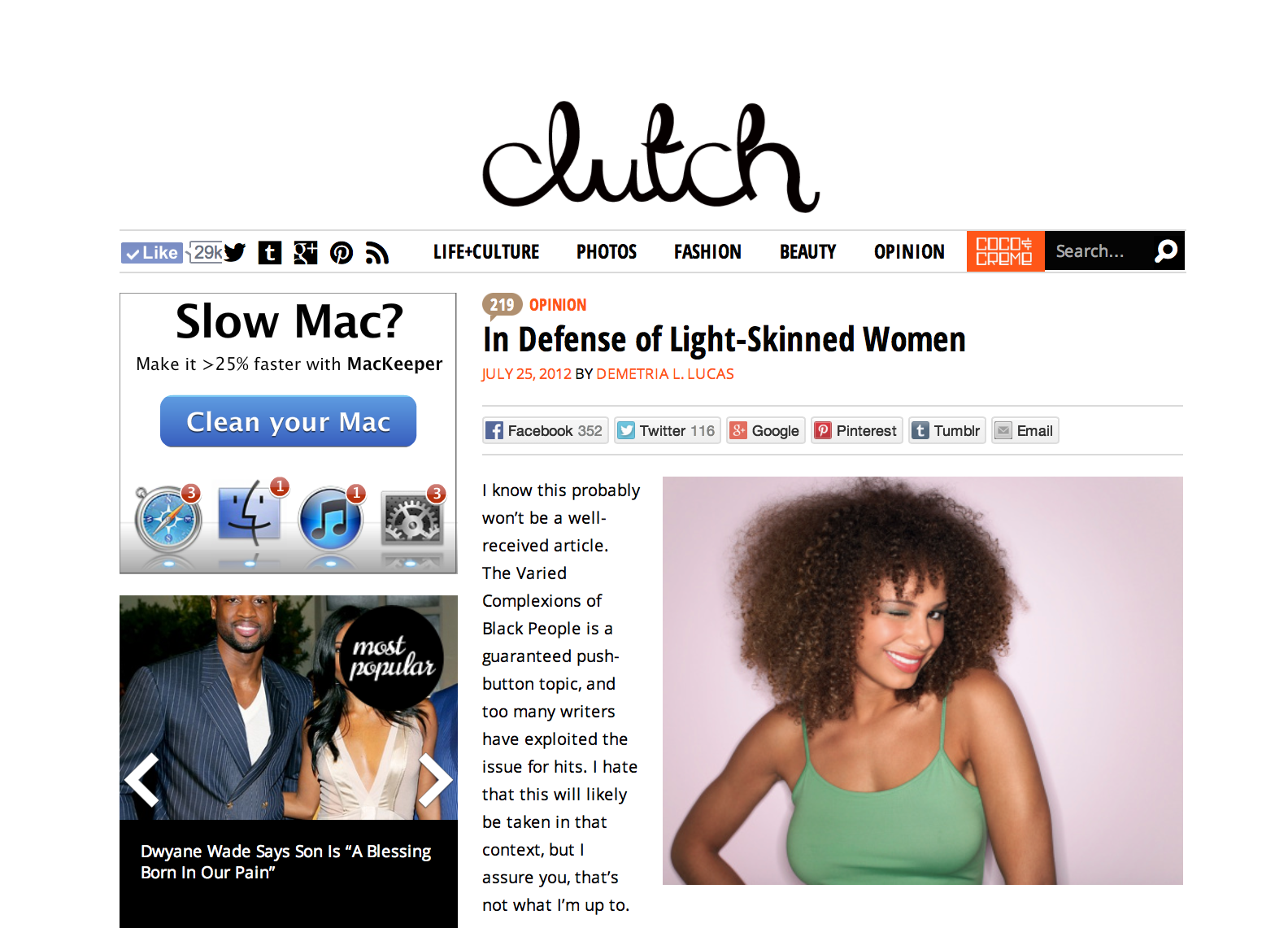 I know this probably won’t be a well-received article. The Varied Complexions of Black People is a guaranteed push-button topic, and too many writers have exploited the issue for hits. I hate that this will likely be taken in that context, but I assure you, that’s not what I’m up to.
Hear me out to the end.
I know this probably won’t be a well-received article. The Varied Complexions of Black People is a guaranteed push-button topic, and too many writers have exploited the issue for hits. I hate that this will likely be taken in that context, but I assure you, that’s not what I’m up to.
Hear me out to the end.
When I caught wind of Eric Benét’s latest single “Redbone Girl,” my first thought was “oh, #$%^!” I wasn’t excited; I was loathing the term for the description of light-complexioned women and more so, the comments sections of multiple sites that would inevitably explode with vitriol and knife-twisting in never fully healed wounds. No one man should have so much power.
We’ve all experienced our fair share of unwanted and offensive commentary about our complexions. We say the comments don’t matter and that we’re so over it, but our reactions show otherwise. The emotional trauma, whether you’re 27 light, 1B dark, or a middle shade like 6 brown, all sticks like balls of track glue. What I want to suggest to you here is there is no outdoing each other in the pain category.
A dark girl encounters ignorance about her complexion? Yeah, so does a light girl. It would be nice if she could get a little empathy and understanding, too. Pain is just, well, painful, period. Who’s Hurt More isn’t part of the upcoming Olympics, and the re-telling of emotional battle scars shouldn’t be a competition.
Undoubtedly, racism, sexism, and alleged “preference” have created an unfair culture in which women with lighter complexions can be more valued in some circles. If you dig up stats on incarceration, employment, and even marriage or familial favoritism, they often tend to pan out in the favor of a “light bright.” That’s not at all OK, and I don’t have any Kumbaya answers for how to recondition 500 years of mind-@#$%ing to make it right.
Because in some situations those of a lighter complexion might get a one-up, that doesn’t discount the many ways in which it can be also be a pain. The hue that can make light-skinned women prized among some also can make them loathed among others. And the latter half of that dichotomy shouldn’t be dismissed because of the former.
The vitriol hurled at a darker woman for being melanin-infused doesn’t somehow trump that of a lighter-hued woman, also marginalized but in her case for not being considered black “enough.” (There’s a reason that after a trip to the beach, you’ll catch some light women extend their arms beside another light friend as a playful competition to see who’s finally darker. Sometimes you’ll catch one measuring her skin beside that of a brown friend to see if her complexion made it to brown status. It’s a joyous occasion to be “black enough.”) The words are different, but the intentional infliction of shame, the feeling of being outcast and set apart for something out of your control hurts just the same.
Read more: here